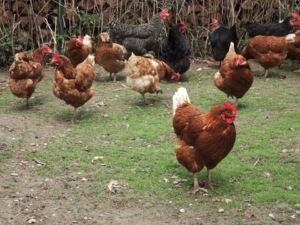News
Bird flu hits first Danish poultry farm
This article is more than 9 years old.
H5N8 found in hobby duck population in north Zealand

Panic time for the poultry industry? (photo: Fødevarestyrelsen)
Last week, in the wake of the discovery of bird flu in several areas in Denmark, the food authority Fødevarestyrelsen ordered Danish egg and poultry farmers to keep their fowl indoors as a precautionary step.
Unfortunately, the first case of the contagious disease H5N8 has been found on a duck farm in north Zealand following tests from the Technical University of Denmark (DTU).
“Th e discovery of bird flu in a Danish hobby population can have huge consequences on the Danish export of poultry,” said Stig Mellergaard, a spokesperson from Fødevarestyrelsen.
“Our options to limit the damage and quickly return to a normal situation are very dependent on both hobby breeders and professional poultry producers following Fødevarestyrelsen’s directions closely.”
READ MORE: Bird flu spreading in Denmark
Millions at stake
Many nations outside Denmark shut down import of Danish poultry as a routine precaution as a result of the findings, and a similar outbreak in 2006 cost Denmark some 200 million kroner in lost export income.
Fødevarestyrelsen has decreed that all tame fowl or birds in captivity within a three-kilometre radius of the location of the bird flu case (on Skibstrupvej 24, 3140 Ålsgårde) must be kept indoors, such as in a stable or hen house.
Suspicions arose over the weekend when about one-third of the population of 30 ducks at the address in north Zealand died.
Tests showed that it was the same type of bird flu that had killed the birds found dead in the wild in the previous weeks. The disease is not considered dangerous to humans.






































